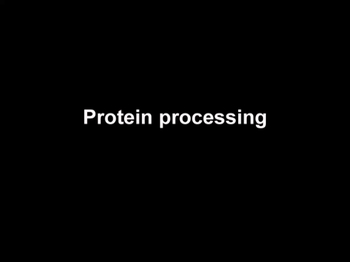2. Cell Chemistry & Cell Components
Proteins
2. Cell Chemistry & Cell Components
Proteins
Additional 13 creators.
Learn with other creators
Showing 16 of 16 videos
Practice this topic
- Multiple Choice
The primary building blocks (monomers) of proteins are:
7008views69rank - Multiple Choice
Which two functional groups are always found in amino acids?
11457views67rank - Multiple Choice
What term is used for an amino acid chain that has greater than 50 covalently linked amino acids?
6120views65rank - Multiple Choice
The specific amino acid sequence in a protein is its:
6385views58rank - Textbook QuestionWhat type of bond is directly involved in the formation of an α-helix?a. peptide bonds between amino acid residuesb. hydrogen bonds between amino acid residuesc. van der Waals interactions between nonpolar residuesd. disulfide bonds between cysteine residues1889views
- Textbook QuestionWhat type of information is used to direct different polypeptides to fold into different shapes?1817views
- Textbook QuestionThe structural level of a protein least affected by a disruption in hydrogen bonding is thea. primary level.b. secondary level.c. tertiary level.d. quaternary level.2781views
- Textbook QuestionIf a cell were to use only 10 of the 20 possible amino acids, how much effect would you expect this to have on protein diversity? Calculate and compare the number of different sequences that can be generated by randomly assembling either 10 or 20 amino acids into peptides that are five residues long.1771views






















